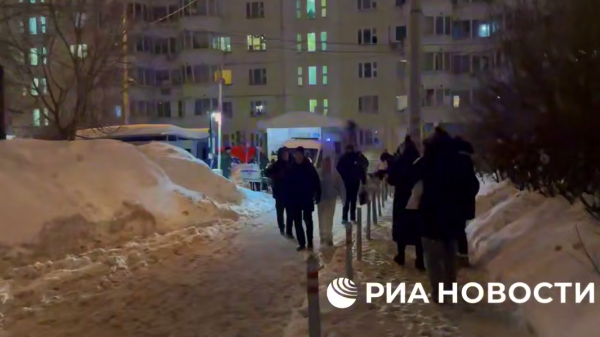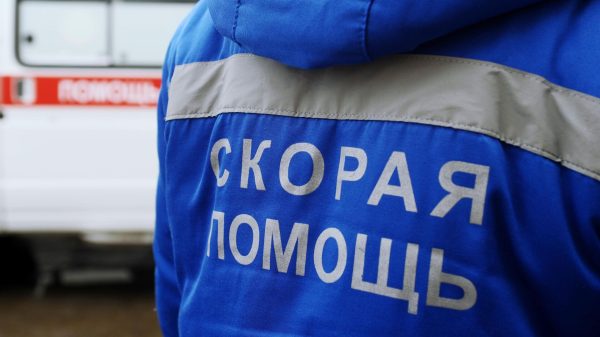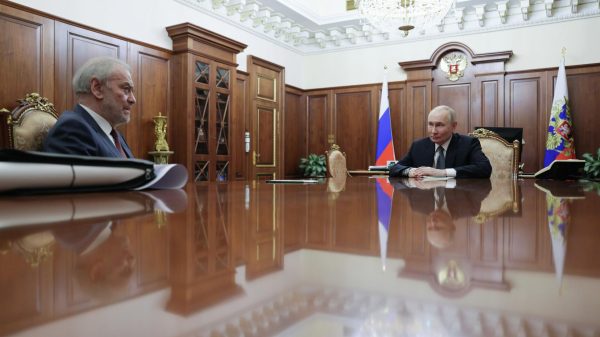
In the aftermath of Moscow’s hacking of the 2016 US election, many analysts expected the GRU to be punished. After all, Russia’s powerful military spy agency had been caught red-handed. The FBI indicted several GRU hackers in humiliating fashion. The spies who stole Democratic party emails – tens and thousands of them – were named and shamed.
In fact, the GRU avoided any repressions. In recent years Vladimir Putin has carried out a sweeping and brutal reorganisation at the top of government, sending a shiver down the spine of nervous bureaucrats. He has sacked or had arrested regional governors and ministers. Even the FSB, Putin’s old spy agency and a rival to the GRU, has seen generals fired.
Russia planned cyber-attack on Tokyo Olympics, says UK
Read more
The one organisation that has carried on unscathed is the GRU, at least judging from the latest attacks revealed on Monday by the US and UK. In 2018 the spy agency sought to disrupt the winter Olympics and Paralympics in Pyeongchang in South Korea. Its hackers were plotting another cyber-raid for this summer against the Olympics in Japan, now postponed until 2021.
None of this is surprising. For years, the Kremlin ran an undercover sports doping programme that achieved extraordinary results – gold medals at the 2012 London Olympics, finishing top of the medals table at the 2014 winter Olympics in Sochi. And all presided over by Putin himself.
A series of Russian whistleblowers revealed this scam. The cheating caused outrage among international sporting bodies. The Kremlin wasn’t contrite. In public, Putin blamed the west and said his country was the victim of an “anti-Russian policy”. In private, he unleashed the GRU. The goal was to dig up information that might discredit Russia’s critics.
The GRU unit behind the latest attacks on South Korea and Japan, 74455, was involved. It targeted the Rio Olympics, the World Anti-Doping Agency (Wada), and other bodies. Working out of a glass tower in Khimki, in north-west Moscow, the unit invented a persona to release stolen sports data: the Fancy Bears hack team. They posed as “hacktivists” rather than spies.
The hackers got hold of medical records and other data from 250 athletes in nearly 30 countries. They included the private health records of Serena Williams, Simone Biles and the cyclists Bradley Wiggins and Chris Froome. All had taken therapeutic medication – permissible under the rules, but spun by the GRU to give the impression of hypocrisy and US-UK doping.
The attacks on Japan and South Korea are part of this disruptive pattern. The only difference this time is the level of sophistication. According to the UK, the unit tried to pass itself off as Chinese or North Korean when it targeted the opening ceremony of the 2018 winter games. The tactic is an old one. It is known as maskirovka – from the Russian word for disguise.
“No country has weaponised its cyber capabilities as maliciously and irresponsibly as Russia, wantonly causing unprecedented collateral damage to pursue small tactical advantages and to satisfy fits of spite,” the US assistant attorney general, John Demers, said on Monday, announcing the indictment of six GRU officers. Indictment is one thing. But thus far, London and Washington have been unable to stop Russia’s cyber-piracy.
The GRU’s reach is remarkable. The US Department of Justice on Monday cited attacks on Ukraine’s critical infrastructure, France’s 2017 presidential election and the Georgian government. There was also a 2018 spear-phishing raid directed at the Organisation for the Prohibition of Chemical Weapons (OPCW) in the Hague. It followed the novichok poisoning in Salisbury of Sergei Skripal by two GRU assassins.
Clearly Putin is still furious at Moscow’s continuing exclusion from international competitions. The four-year ban was imposed in December 2019, after Moscow sent manipulated athlete data to Wada. Instead of cleaning up Russian sport, Putin seems determined to continue a role he has perfected in recent years: that of global spoiler and disrupter.
-
Luke Harding’s latest book Shadow State: Murder, Mayhem and Russia’s Remaking of the West (Guardian Faber) is available from the Guardian Bookshop.



















































Свежие комментарии